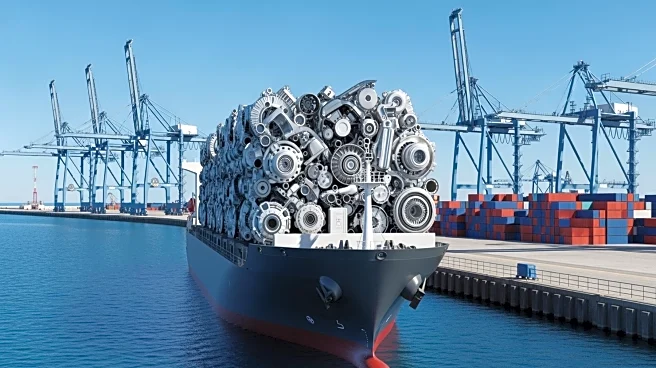What's Happening?
The implementation of tariffs on automotive imports has significantly affected North Carolina's automotive industry. On April 3, a 25% tariff was imposed on automobiles, followed by a similar tariff on auto parts
on May 3. These tariffs have led to a decline in imports, with North Carolina's vehicle and parts imports dropping approximately 26% year-to-date. Despite the decrease in imports, exports have increased by 37%, indicating a shift in market dynamics. Domestic producers have seen a modest increase in activity, but consumers face higher prices and fewer options due to reduced supply.
Why It's Important?
The tariffs on automotive imports are reshaping the economic landscape for North Carolina's automotive industry. While domestic producers may benefit from reduced competition, consumers are likely to face higher prices and limited choices. The decrease in imports reflects a significant reduction in affordable vehicles and parts available to consumers, highlighting the broader impact of trade restrictions. Additionally, major automotive companies like Toyota and General Motors are experiencing substantial financial hits due to these tariffs, affecting their profitability and operational strategies.
What's Next?
As the tariffs continue to impact the automotive industry, stakeholders may need to adapt their strategies to mitigate financial losses and maintain market competitiveness. Companies might explore sourcing materials domestically to avoid tariffs, while policymakers could consider revising tariff policies to balance domestic production benefits with consumer interests. The ongoing trade dynamics will likely influence future decisions in the automotive sector, including potential shifts in manufacturing locations and supply chain adjustments.
Beyond the Headlines
The tariffs highlight the complex interplay between trade policies and economic outcomes. While intended to protect domestic industries, tariffs can lead to unintended consequences, such as increased consumer costs and strained international relations. The situation underscores the need for careful consideration of trade policies and their long-term implications for both domestic and global markets.









